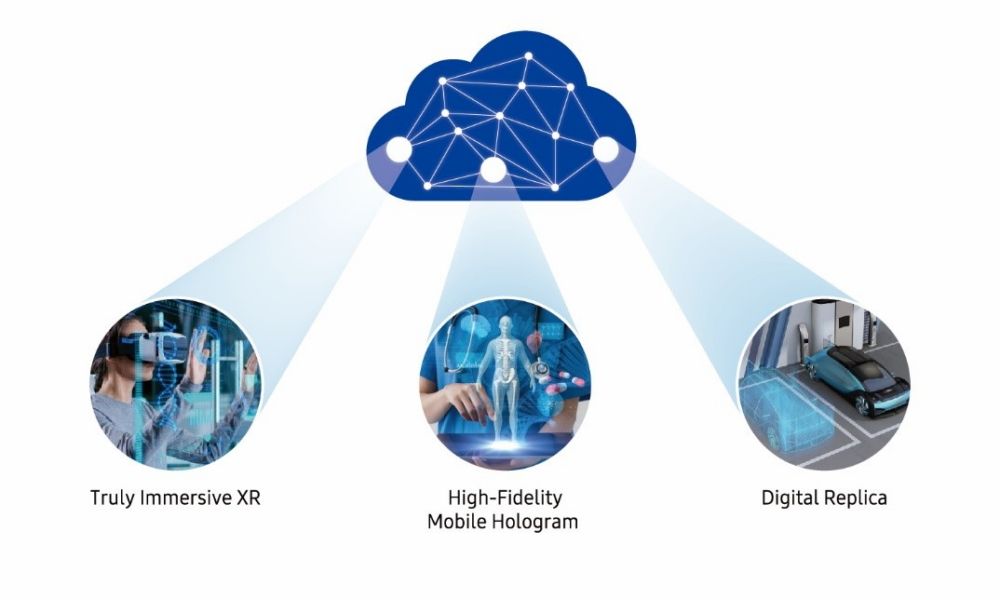Samsung: next generation of communication 5G and 6G

Developed from the first generation analog communication, wireless communication technology has transformed from supporting voice calls only, into ultra-fast 5G.
In a recent white paper released by Samsung titled “The Next Hyper-Connected Experience for All” outlined the technology company’s vision for the next generation communication system - 6G.
Samsung’s vision for 6G innovation is to “bring the next hyper-connected experience to every corner of life.” Towards the end of May 2019, the advanced R&D hub in Samsung Electronics’ SET Business founded its Advanced Communications Research Center to drive this vision.
“While 5G commercialization is still in its initial stage, it’s never too early to start preparing for 6G because it typically takes around 10 years from the start of research to commercialization of a new generation of communications technology,” commented Sunghyun Choi, Head of the Advanced Communications Research Center.
“We’ve already launched the research and development of 6G technologies by building upon the experience and ability we have accumulated from working on multiple generations of communications technology, including 5G. Going forward, we are committed to leading the standardization of 6G in collaboration with various stakeholders across industry, academia and government fields.”
Within the white paper Samsung predicts the completion of the 6G standard and its earliest commercialisation date to be as early as 2028, with mass commercialisation predicted for 2030. The company also expects that both humans and machines will be the main users of 6G, which will have advanced services capabilities such as truly immersive extended reality (XR), high-fidelity mobile hologram and digital replica.

While 5G focuses on performance aspects, Samsung explains within the white paper three category requirements that will need to be met in order to realise 6G - performance, architectural and trustworthiness.
Giving examples of these requirements Samsung details:
- 6G performance requirements will need to have a peak data rate of 1,000 Gbps (gigabits per second) and air latency less than 100 microseconds (μs).
- Architectural requirements of 6G will include the resolution of limited computation capability of mobile device issues, in addition to implementing AI from the initial phase and enabling flexible integration
- Trustworthiness requirements will need to address the security and privacy issues arising from the use of user data and AI
Finally the white paper also outlines potential technology that could be essential in meeting the requirements for 6G. These technologies include:
- The use of the terahertz (THz) frequency band to enhance the coverage of high frequency band signals
- Advanced duplex technologies the evolution of network topology
- Spectrum sharing to increase the efficiency of frequency utilisation
- Artificial intelligence
To download Samsung’s 6G white paper, click here!
For more information on Samsung’s latest innovations in communications technology, click here!
For more information on business topics in Asia Pacific, Australia and New Zealand, please take a look at the latest edition of Business Chief APAC.
- How LG Electronics is restructuring to accelerate growthCorporate Finance
- How Samsung’s US$5billion sustainability plan is working outSustainability
- How incoming CEO Mohit Joshi is restructuring Tech MahindraCorporate Finance
- How AI is ushering in the age of the augmented workforceTechnology
Featured Articles
Nirvik Singh, Global COO and President International of Grey Group, cultivating culture and utilising AI to enhance rather than replace human creativity
On a mission to accelerate the adoption of sustainable energy solutions, US$30 billion Chinese tech firm Longi is not just selling solar – but using it
Armed with an ambitious billion-dollar strategy, Samsung is on track to achieve net zero carbon emissions company-wide by 2050 – but challenges persist

